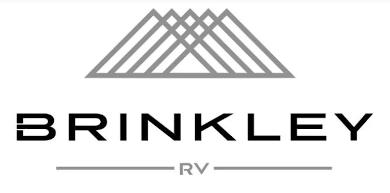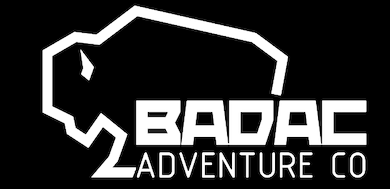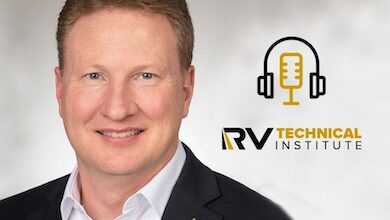Remembering the Titans: Tom Corson
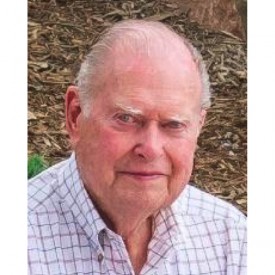 Tom Corson
Tom CorsonEditor’s note: In 12 months’ time, two legends in the RV/MH industries, Arthur J. Decio and Thomas H. Corson, passed on. They left behind indelible marks on their industries and a host of memories for those who knew them. Steve Bibler, who covered both men during his 50-year career in print journalism in Elkhart, Ind., shares some of his earliest memories of these two great entrepreneurs. Part 1 of the series appearing today focuses on Tom Corson; Part 2 of the series, running tomorrow, highlights Art Decio.
Thomas H. Corson – Oct. 15, 1927-Dec. 23, 2019
On Nov. 28, 1973, I covered my first “Louisville Show.” The event was then known as the RV National Dealer Rally and was sponsored by the Recreational Vehicle Institute, a forerunner to the RVIA.
The buzz at this show was whether rising fuel prices were going to harm the RV industry. I headed for the Coachmen display and found Thomas H. Corson, president and CEO.
From this first interview to the last I conducted in 2018 for RV PRO’s three-part series on “The Leadership Factories,” I always found Tom Corson to be congenial toward the press and willing to offer his insight into the industry he loved and knew so well. He always possessed a warm feeling toward his community and strived for a positive spin whenever possible.
At the 1973 show, I learned that Corson and other industry leaders had met earlier in the week and agreed to raise nearly $2 million for a massive advertising campaign to improve the image of the RV industry.
They envisioned their products becoming the “Ambassadors of the Asphalt” and announced a PR firm had already been hired to tell how the RV industry could contribute to the conservation fight. Corson and his RV industry cohorts planned to promote the 10-gallon weekend by encouraging Americans to take short trips in their RVs.
While this marketing effort would occur many years before the launching of the game-changing Go RVing campaign, Corson, by 1973, was already a strong advocate of industry unity, a concept that was not popular with many of his peers.
The dilemma facing Corson and the rest of the RV industry was the uncertainty of retail fuel prices. OPEC members had proclaimed an oil embargo in response to the U.S. support of Israel during the Yom Kippur War in October 1973 and gasoline prices had begun to “soar.”
Soar is a relative word. Gasoline prices stood at a national average of 38.5 cents a gallon in May 1973 and would go to 55.1 cents by June 1974.
A 17-cent rise in one day is not uncommon in today’s economy but back then, this steady price hike was disastrous. Politicians talked about gas rationing. President Nixon requested service station owners not to sell gasoline on Saturday nights or Sundays; 90 percent of owners complied, which produced long lines the rest of the week.
This was uncharted territory for Americans – especially RVers.
Conditions only got worse.
Over the winter of 1973-1974, the national media began to depict motorhomes as gas-guzzlers and some even suggested that it was unpatriotic to own an RV. It’s no wonder that media harping lured many Americans to stop buying RVs by the spring of 1974.
Elkhart County’s economy faltered, and unemployment soared. AAA reported that in the last week of February 1974, 20 percent of American gasoline stations had no fuel.
I began to hear industry folk describe the RV industry as a “bellwether” for the rest of the U.S. economy.
The 1974 Louisville Show was depressing, as I recall the aisles seemed rather sparse. I found Corson again and asked him about prospects for the RV industry. He said he was “cautiously optimistic” about the future. (In time, I would learn that the term was code for “darn scared.”)
I can’t tell you how many times since 1974 I’ve heard RV industry folks use the term “cautiously optimistic” and it always makes me think about Corson’s comment to me.
I heard through the grapevine that the Coachmen sales staff garnered a mere 50 orders at that 1974 show. Fearing how that news might be received, I opted not to report it. I did learn that Corson subsequently ordered his sales staff to fan out over the country to drum up more orders.
Corson Touts “Coachmen College”
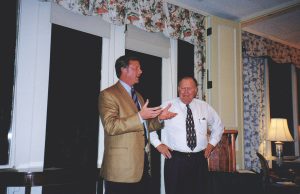
My final interview with Corson, in November 2018 when he was 91 years old, focused on Coachmen’s role as training ground for future presidents and CEOs for the RV industry. Corson himself had coined the term “Coachmen College” years earlier and seemed to enjoy revisiting the topic for my story.
He noted how Coachmen gave starts to Ron and Bill Fenech, Don Clark, Mike Terlep and Bob Martin, among others.
When asked what it was about Coachmen and his influence that spawned so many future corporate leaders, Corson replied, “We were always honorable with our people, as well as our customers and everybody else. In addition to those skills, we always gave them (key employees) a share of the wealth we had, and we tried to continue our products in a way that would benefit not only our customers but also our dealers and ourselves. We came up with ideas. We stood behind that.”
For the RV PRO series, Martin, who started as a trainee, told me, “From Ron and Don up to Mike Terlep and Tom Corson, they taught you to do business the right way. They had a great training program: how to sell, interact with dealers, and do business the right way with honesty and integrity. There even was a mantra on our computers, ‘Our word is our bond.’ It was a great place to learn.”
It was the ultimate compliment to Tom Corson, always an educator, whose positive impact on the RV industry will be everlasting. When all is said and done, his focus on training and education may be Corson’s most significant industry legacy.
